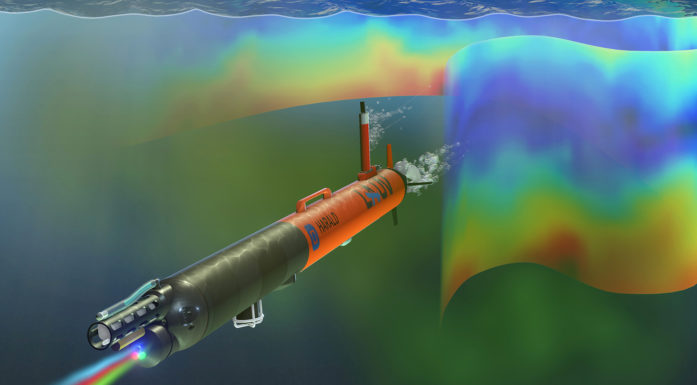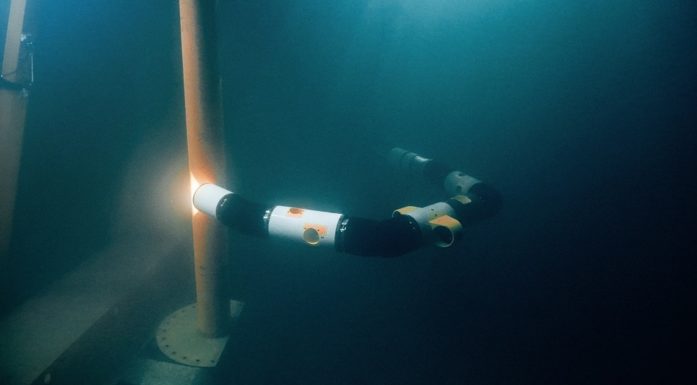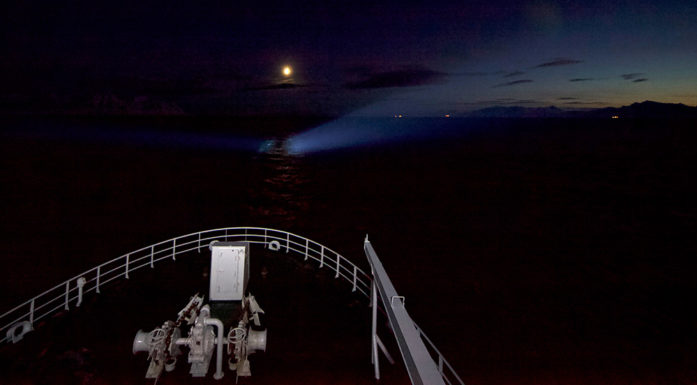Building trust in robots to measure, monitor, and regulate the ocean
A new partnership between the Centre for the 4th Industrial Revolution Ocean and the Norwegian University of Science and Technology (NTNU) has been established to establish trust in ocean data collected from autonomous underwater vehicles.
Autonomy, where machines work with the limited aid of humans, is set to transform our economy and the way we conduct science. Autonomous cars, ferries, and even planes are being planned to revolutionize transportation, autonomous deliveries are being developed to reshape commerce, and autonomous underwater vehicles are already changing how we measure and monitor the ocean – especially the deepest and most remote parts of the ocean.
Autonomous data collection, from gliders, unmanned submarines, buoys, and other devices is already a reality that has been catapulted into the mainstream by COVID-19, which has made traditional means of collecting ocean data from ships and in the field almost impossible.
C4IR OCEAN
The World Economic Forum has set up 13 centres for the 4th Industrial Revolution across the globe. The centres work with governments, leading companies, civil society, innovators and science experts from different sectors to explore how to maximize the benefits of modern technology to solve important societal tasks. Located in Oslo, Norway, the Centre for the Fourth Industrial Revolution Ocean is the only centre solemnly focusing on ocean challenges. C4IR Ocean was initially founded by the Aker group and World Economic Forum one and a half year ago, now with a growing network of 16 partners.
But as we rely more and more on autonomous underwater vehicles — essentially, robots— to collect critical ocean data, will these data be useful and trusted by policymakers, or will we all be drowned in mountains of streaming, big data from the ocean?
Answering this question is the challenge of a newly created Hoffman Fellowship in Building Trust for Ocean Data – a 3-year postdoc position supported by NTNU and the World Economic Forum, and hosted by NTNU and the C4IR Ocean. The groups are conducting an international search for a young, academic innovator who can pioneer technical and cultural approaches to making sure that the data collected by autonomous underwater vehicles is both trustworthy and trusted.
Building trust in data
“NTNU and SINTEF are honoured and grateful that we together with our partners C4IR Ocean and WEF can leverage the efforts on handling big data at a high quality. The value for us and the society is based on trusted data,” said Asgeir J. Sørensen, a professor at NTNU’s Department of Marine Technology and director of AMOS, the Centre for Autonomous Marine Operations and Systems.
The partnership between C4IR Ocean and NTNU, supported by World Economic Forum, wewill bring together the latest thinking in data, technology, science, and industrial innovation to try to change how evidence informs ocean management and in doing so, seeks to find new ways for science and data to inform a sustainable blue economy.
“The ambition of the C4IR Oceans flagship project, the Ocean Data Platform, is to establish the largest and most inclusive hub for ocean data. Establishing trust in ocean data collected from autonomous vehicles is key for decision makers to be able to rely on these data as a basis for management. We truly look forward to the results from the joint Fellowship with NTNU”, says Bjørn Tore Markussen, CEO C4IR Ocean.
- You might also like: Shedding light on zooplankton in the dark
The Hoffmann Fellow
The fellowship is designed to focus on digital and cultural approaches to building trust in ocean data. The two-year term will be co-hosted evenly between the World Economic Forum and NTNU.
This PhD position can be extended for an additional year (to three years in total), as NTNU/SINTEF Ocean offers two years of funding in addition to one-year funding from the World Economic Forum and André Hoffmann.
The position is designed to examine the barriers that diminish trust in big ocean data and the solutions, both digital and cultural, that might overcome these barriers. The fellow will focus on selected pilots that examine new streams of big data related to the maritime industries.
The fellow will reside jointly at the Ocean Space Centre in Trondheim hosted by NTNU and SINTEF Ocean and the C4IR Ocean and will support joint work involving science, governance, and industry.





